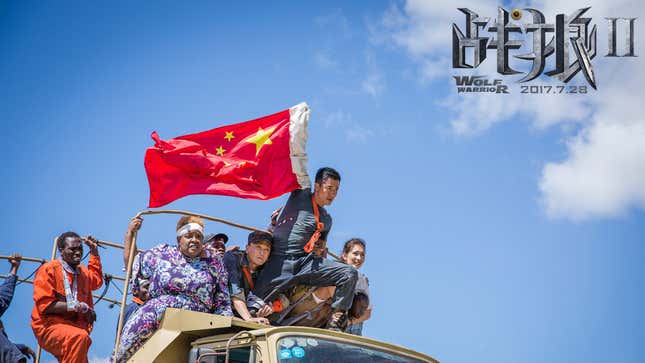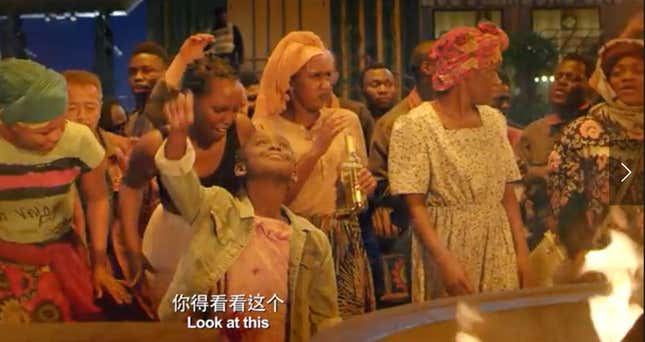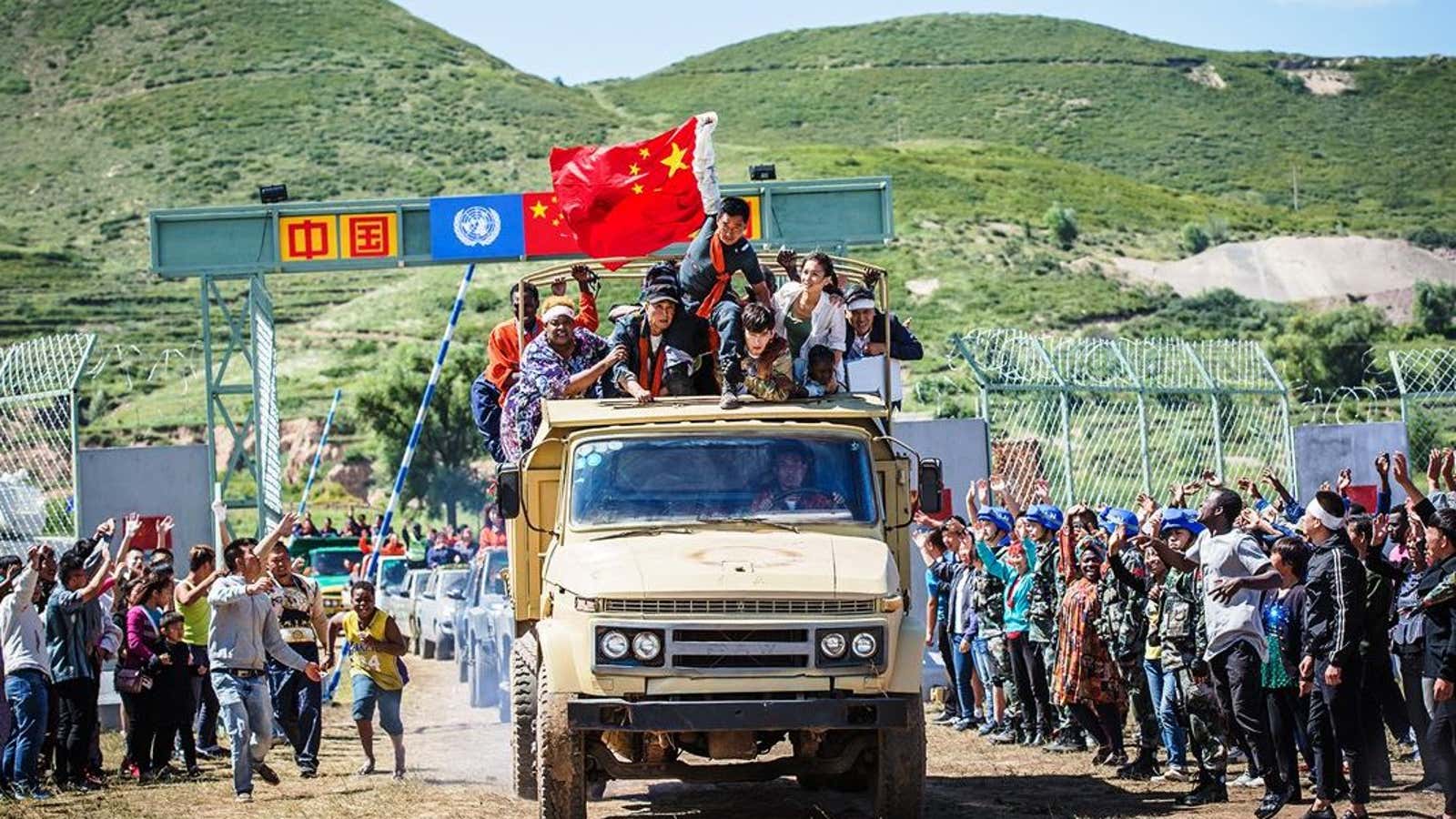In the film Wolf Warrior 2, Leng Feng, a former special forces operative, is on a one-man mission to save Chinese nationals and innocent locals from local rebels and mercenaries in a generic African country. In the film’s trailer, a jeep trawls through a green savannah, passing two lions. African workers dancing around a bonfire at an apparently Chinese-financed factory are attacked by white mercenaries. A busy throughway in a market town comes under fire. Leng, armed with a knife and his martial arts skills, arrives at a compound, telling its occupants, “I’m here to save you.”
Wolf Warrior 2 is now China’s highest grossing film ever, having earned $687.5 million in its first two weeks, takes place on a continent where China’s military muscle and status as a global power are increasingly on display.
The film is a first in other ways. Leng, played by the Chinese action actor Wu Jing, is China’s own version of the White Savior. A Wikipedia entry, referring to American movies, describes the White Savior narrative as “a cinematic trope portraying a white character rescuing people of color from their plight.”

Leng, a Rambo-style lone wolf fighter who miraculously dodges bullets and uses a mattress to stop a grenade, is charged with getting the adopted African child of a slain Chinese doctor to safety. He’s the first to survive a disease called “lamania” that has killed many locals, thanks to the doctor who discovered the cure before his death.
China has long framed its partnerships in Africa as alliances of equals, built around mutual economic benefit. Now, China is stepping up its role as a humanitarian actor and protector of world peace. Earlier this month, China opened its first overseas military base, in Djibouti in the Horn of Africa. It has 700 peacekeepers in South Sudan where it is also sending medical teams and food supplies.

When two Chinese peacekeepers were killed in fighting in South Sudan last year, Chinese officials and media described the men as heroes and their deaths as the price of China’s new status as a major power. Despite concerns about the experience and capabilities of Chinese peacekeepers, Chinese president Xi Jinping has pledged to increase China’s peacekeeping force to 8,000 troops, from the 2,600 deployed today.
Like many Western films before it, the specifics of the African setting of Wolf Warriors 2 are irrelevant. The film was mostly shot in China and in Soweto in South Africa, but no country is ever named. Leng’s colleagues say they like Africa because of its good food, scenery, attractive women, and the opportunity to use their weapons.
Reaction to the film in China has been mixed, we reported earlier this week, with the film receiving only 7.5 out of 10 on the film portal Douban. Commenters called the movie’s appeal to a sense of patriotism “phony” and testosterone-fueled. “The film tells us Chinese people can also save the world,” one commentator said.
